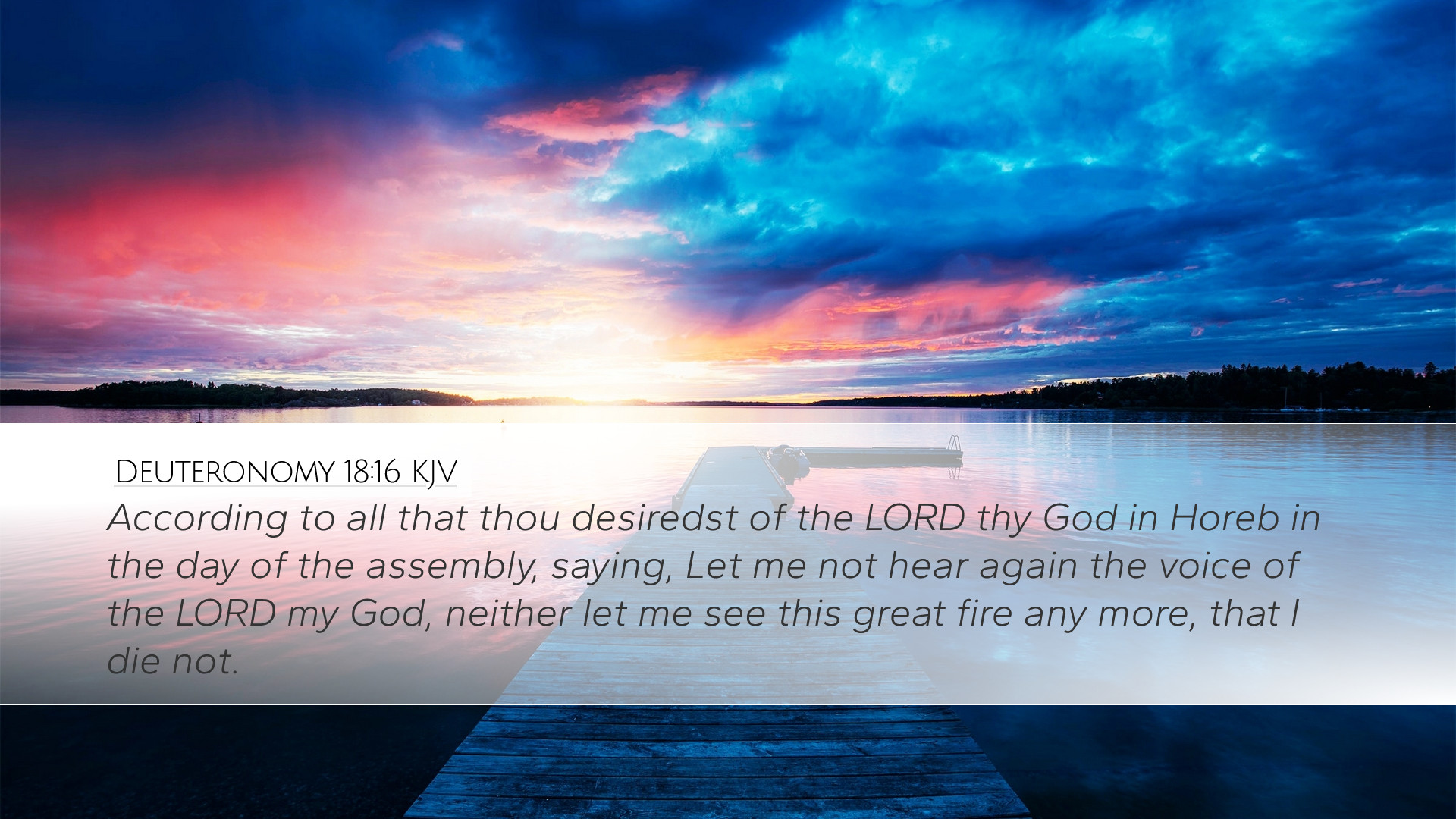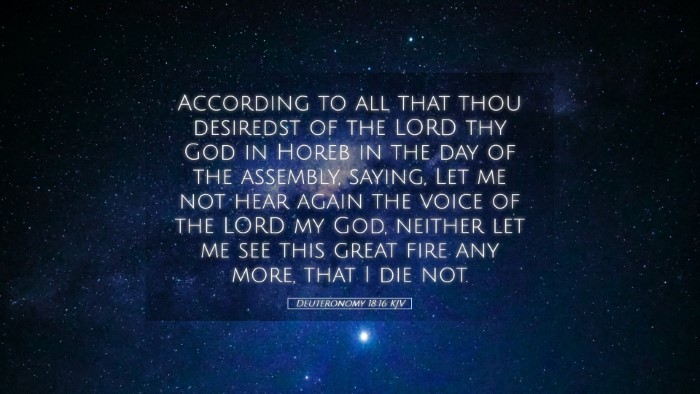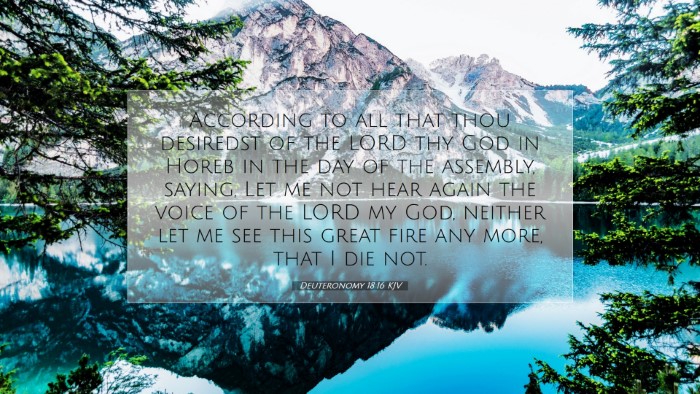Commentary on Deuteronomy 18:16
Deuteronomy 18:16 reads: "According to all that thou desiredst of the LORD thy God in Horeb in the day of the assembly, saying, Let me not hear again the voice of the LORD my God, neither let me see this great fire any more, that I die not."
Introduction
This verse is a crucial part of Moses' discourse to the Israelites as he reminds them of their past and the covenant they are establishing with God. This passage encapsulates a significant moment where the people express their fear and the desire for a mediator between them and God.
Contextual Background
The event referred to in Deuteronomy 18:16 is set at Mount Horeb, where the Israelites experienced the terrifying presence of God. The giving of the Law and the manifestation of God's holiness had profound effects on the people, leading them to request a mediator.
Insights from Public Domain Commentaries
Matthew Henry's Commentary
Henry highlights the terror that the Israelites felt at the sound of God's voice and the fire they witnessed on Mount Horeb. He notes that their request not to hear God's voice directly was a manifestation of their fear and recognition of their own sinfulness. Henry interprets this as an indication of the human inclination to avoid direct confrontation with the divine due to the innate awareness of personal unworthiness.
Albert Barnes' Commentary
Barnes elaborates on the context of this verse, noting that the desire expressed by the people was significant. They were suggesting the establishment of a prophetic office where a mediator could stand between them and God. Barnes emphasizes that this was a foreshadowing of the ultimate prophetic role fulfilled in Christ, who serves as the perfect intermediary between God and humanity.
Adam Clarke's Commentary
Clarke provides an analysis of the emotional backdrop of the Israelites’ plea at Horeb. He stresses not only the fear of physical death from encountering God’s holiness but also the spiritual implications of their request. Clarke suggests that their desire to have a prophet arise from among them points to their need for understanding God's will through human channels. He further connects this with God’s plan to raise prophets, culminating in Jesus Christ as the final prophet.
Theological Implications
This verse raises significant theological questions about God's desire for communion with humanity and how this communion is mediated. The Israelites' fear underscores a prevalent theme in Scripture: the holiness of God demands a mediator. This notion is critical for pastors and theologians to understand the implications of divine-human interaction.
The Mediatorial Role
- Historical Perspective: The Israelites’ request prefigures the prophetic ministry that God would establish.
- Christological Fulfillment: The ultimate mediation by Jesus Christ fulfills the Israelites’ longing for a prophet.
- Practical Application: Pastors can draw parallels to the importance of spiritual leaders today who guide congregations in understanding their relationship with God.
Application for Today
The importance of mediators between God and humanity is still relevant today. While Christ is the ultimate mediator, Christian leaders are called to facilitate spiritual growth and understanding. This verse can serve as a reminder of the importance of approaching God with reverence, acknowledging His holiness, and understanding the need for guidance in faith.
Conclusion
Deuteronomy 18:16 serves as a profound reminder of the nature of fear in the presence of holiness and the human desire for a representative to navigate this relationship with God. By examining insights from renowned commentators, we gain deeper understanding into this text, enriching our interpretation and application in modern faith contexts.


